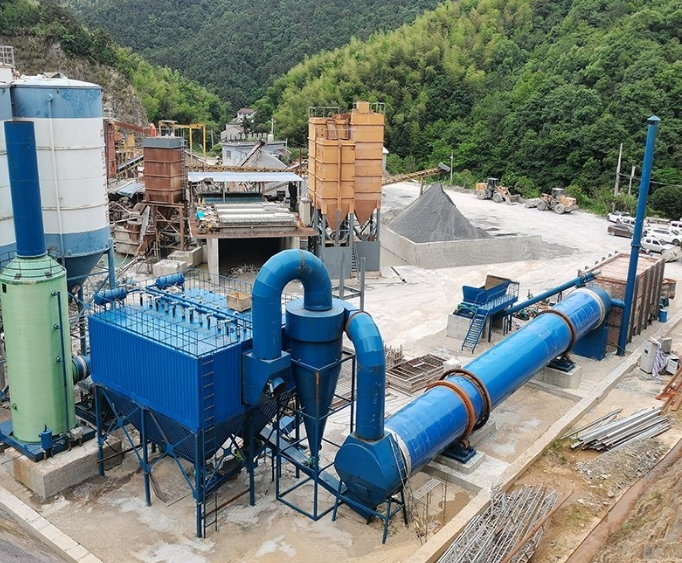
Calcined Petroleum Coke (CPC) is a crucial material used in various industrial applications, and its production relies heavily on specialized equipment to ensure efficiency, consistency, and quality. In this article, we explore the essential equipment involved in CPC production.

The heart of the CPC production process is the rotary kiln. This cylindrical, high-temperature furnace is where raw petroleum coke undergoes calcination. Rotary kilns are typically lined with refractory materials to withstand the extreme temperatures, which can exceed 1300°C. They come in various designs, such as direct-fired and indirect-fired kilns, depending on the specific production requirements.
Before entering the rotary kiln, raw petroleum coke needs to be preheated to drive off volatile components and moisture. Various preheating equipment options are available, including rotary preheaters, fluidized bed preheaters, and multi-stage preheaters. The choice depends on factors such as the desired product quality, energy efficiency, and plant design.
Once the calcination process is complete, the calcined coke must be further processed to achieve the desired particle size distribution. Grinding mills are employed for this purpose. They reduce the calcined coke to the appropriate particle size, ensuring consistency in the final product.
Conveyors play a pivotal role in moving raw materials and intermediate products throughout the CPC production process. Belt conveyors, screw conveyors, and pneumatic conveyors transport materials from one stage to another, ensuring a smooth and continuous production flow.
The calcination of petroleum coke generates fine particulate matter, which must be efficiently captured to prevent environmental pollution and maintain worker safety. Baghouses and dust collectors are essential in CPC production facilities. They filter the air, collecting particulates and allowing clean air to be released into the atmosphere.
CPC production generates significant quantities of the product, which must be stored before packaging and distribution. Silos and storage facilities provide the necessary space to store calcined petroleum coke safely and in an organized manner. These storage units are typically designed to prevent contamination and maintain product quality.
Ensuring the quality and consistency of CPC requires specialized equipment for analysis. This includes tools for chemical composition analysis, such as X-ray fluorescence (XRF) and combustion analysis, to measure the content of elements like carbon, sulfur, and metals. Physical properties like bulk density and particle size distribution are also analyzed using techniques like sieve analysis and gas pycnometry.
After calcination, the CPC is often too hot for immediate handling and packaging. Cooling systems, such as rotary coolers or fluidized bed coolers, are employed to lower the temperature of the product to a manageable level. Efficient cooling is critical to prevent thermal damage to the product and ensure safe handling.
Modern CPC production facilities rely on sophisticated automation and control systems. These systems monitor and manage various parameters such as temperature, pressure, and flow rates, ensuring the process operates within predefined limits. Automation helps maintain product quality and reduces the risk of human error.
Environmental concerns are increasingly important in industrial processes. Equipment such as flue gas desulfurization (FGD) systems and catalytic converters are used to reduce emissions of sulfur dioxide (SO2) and other pollutants, making CPC production more environmentally friendly.
In conclusion, the production of Calcined Petroleum Coke is a highly specialized and technically demanding process that relies on a range of equipment to ensure efficiency, quality, and environmental compliance. The choice of equipment and the overall process design can significantly impact the final product's properties and the sustainability of the production process. As the industry continues to evolve, so too will the technology and equipment used in CPC production, with a focus on improving efficiency and environmental responsibility.

Write a Message